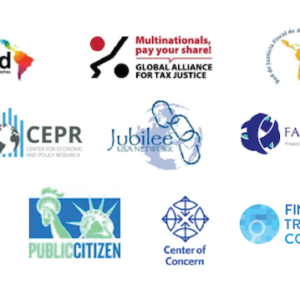Rolling Back Extractives Transparency Measure Could Hamper National Security
Lawmakers in the House of Representatives are expected to introduce a controversial resolution to repeal a bipartisan anti-corruption safeguard, in a move panned by non-partisan anti-corruption experts.
Former Sen. Richard Lugar (R-IN) and Sen. Ben Cardin (D-MD) sponsored the Energy Security Through Transparency Act, as an amendment to the Dodd-Frank Wall Street Reform and Consumer Protection Act of 2010. The provision protects U.S. national security and combats corruption in developing countries (particularly those plagued by extremist violence and conflict) by requiring oil, gas, and mining companies which report to the Securities and Exchange Commission to publicly report all payments made to host-governments.





